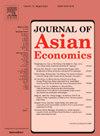企业劳动力市场与对最低社保缴费的规避反应
IF 2.9
3区 经济学
Q1 ECONOMICS
引用次数: 0
摘要
本研究考察了提高社会保障缴款对企业工资和就业的影响,并揭示了将劳动力市场效应与执法严格程度结合起来进行综合评估的重要性。我们特别关注中国社会保障计划的最低缴费要求。通过利用各城市每年的变化,我们发现了强有力的证据,表明最低缴费基数的增加会降低企业的平均工资和就业,并导致更多的逃避。当不合规的可能性更大时,企业倾向于逃避更多,减少工资和就业。异质性分析表明,具有不同特征的企业倾向于采用不同的工具来减轻出资负担。我们的估计还表明,与雇主的缴费率相比,企业对最低缴费率表现出更大的敏感性。这些结果强调了最低基数在影响企业的劳动力市场反应方面的重要性,并强调了在解决社会保障缴款增加问题时逃避和劳动力市场反应之间的相互作用。本文章由计算机程序翻译,如有差异,请以英文原文为准。
Firms’ labor market and evasion responses to the minimum social security contributions
This study examines the effects of raising social security contributions on firms’ wages and employment and reveals the importance of combining labor market effects with enforcement stringency for comprehensive evaluations. We focus particularly on the minimum contribution requirement in China’s social security program. By exploiting its city-by-year variations, we find robust evidence that an increase in the minimum contribution base would reduce both firms’ average wage and employment, and induce more evasion. When non-compliance is more likely, firms tend to evade more and reduce less in wages and employment. Heterogeneous analysis shows that firms with different characteristics tend to employ different instruments to reduce the contribution burden. Our estimates also indicate that firms exhibit a greater sensitivity to the minimum contribution base compared to the employers’ contribution rate. These results underscore the importance of the minimum base in influencing firms’ labor market responses and highlight the interactions between evasion and labor market responses in addressing the increase in social security contributions.
求助全文
通过发布文献求助,成功后即可免费获取论文全文。
去求助
来源期刊

Journal of Asian Economics
ECONOMICS-
CiteScore
4.70
自引率
9.40%
发文量
90
期刊介绍:
The Journal of Asian Economics provides a forum for publication of increasingly growing research in Asian economic studies and a unique forum for continental Asian economic studies with focus on (i) special studies in adaptive innovation paradigms in Asian economic regimes, (ii) studies relative to unique dimensions of Asian economic development paradigm, as they are investigated by researchers, (iii) comparative studies of development paradigms in other developing continents, Latin America and Africa, (iv) the emerging new pattern of comparative advantages between Asian countries and the United States and North America.
 求助内容:
求助内容: 应助结果提醒方式:
应助结果提醒方式:


